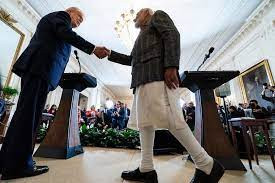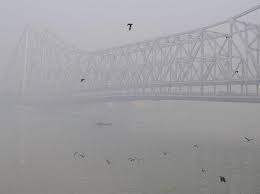Indian Army Accuses Pakistan of "Blatant Escalation" Along Border Amid Intensified Military Confrontation

IIE Digital Desk : Indian Army condemned Pakistan for continuing a "blatant escalation" along the western border, citing drone strikes and other munitions targeting Indian territories. According to Indian military sources, multiple "enemy armed drones" were intercepted and destroyed near Amritsar, a city in Punjab close to the border. The Indian Army emphasized its commitment to countering these "enemy designs" and maintaining national security.
The heightened tensions between India and Pakistan have led to a series of retaliatory military actions. Pakistan reported launching a military operation targeting India, claiming to have hit multiple Indian military bases. The situation reflects active military engagement between the two neighboring countries, both of which possess nuclear arsenals.
The escalation follows a deadly attack on Hindu tourists in Kashmir in April, which India attributes to Pakistani-backed militants. In response, India initiated "Operation Sindoor" on May 7, launching a series of 14 attacks targeting locations in Pakistani-administered Kashmir and Pakistan's Punjab province. The Indian government described the strikes as "focused, measured, and non-escalatory," aiming at terrorist infrastructure rather than Pakistani military facilities. However, Pakistani officials condemned the attacks as acts of aggression and vowed retaliation.
Pakistan's response included drone and missile strikes across several Indian cities, including Amritsar. Indian authorities reported intercepting these strikes using the S-400 missile system, marking its first combat use. The Indian government stated that it was "compelled to respond to bring mortar and artillery fire from Pakistan to a halt." In retaliation, India conducted Suppression of Enemy Air Defence (SEAD) and Destruction of Enemy Air Defence (DEAD) operations, claiming to have neutralized air defense systems in Lahore.
The conflict has resulted in significant casualties on both sides. At least 48 fatalities have been reported since the escalation began, including 13 civilians in Pakistani-administered Kashmir over the past 12 hours. Both countries have closed civilian airspace in several regions, and India has mobilized additional troops. In response to the growing tensions, India conducted a nationwide civil defense mock drill on May 7, code-named "Operation Abhyaas," across 244 districts. The exercise aimed to bolster civilian readiness against potential hostile threats, including air-raid sirens, blackout simulations, and evacuation drills.
International actors have expressed concern over the escalating conflict. The United States, China, Saudi Arabia, and Turkey have urged both nations to exercise restraint and engage in diplomatic dialogue to prevent further escalation. U.S. Secretary of State Marco Rubio has offered support for negotiations, although Washington maintains a non-intervention stance. Pakistan's Prime Minister Shehbaz Sharif convened the National Command Authority, sparking concerns about nuclear escalation, though domestic officials have played down the likelihood of such developments.
India and Pakistan have expressed conditional willingness to halt attacks if the other reciprocates. Pakistani Foreign Minister Ishaq Dar emphasized restraint but warned of further retaliation if provoked. Indian officials confirmed their commitment to non-escalation, though Pakistani troop movements suggest otherwise. The international community continues to monitor the situation closely, urging both sides to prioritize dialogue and de-escalation to avoid a full-scale conflict.
You might also like!
















